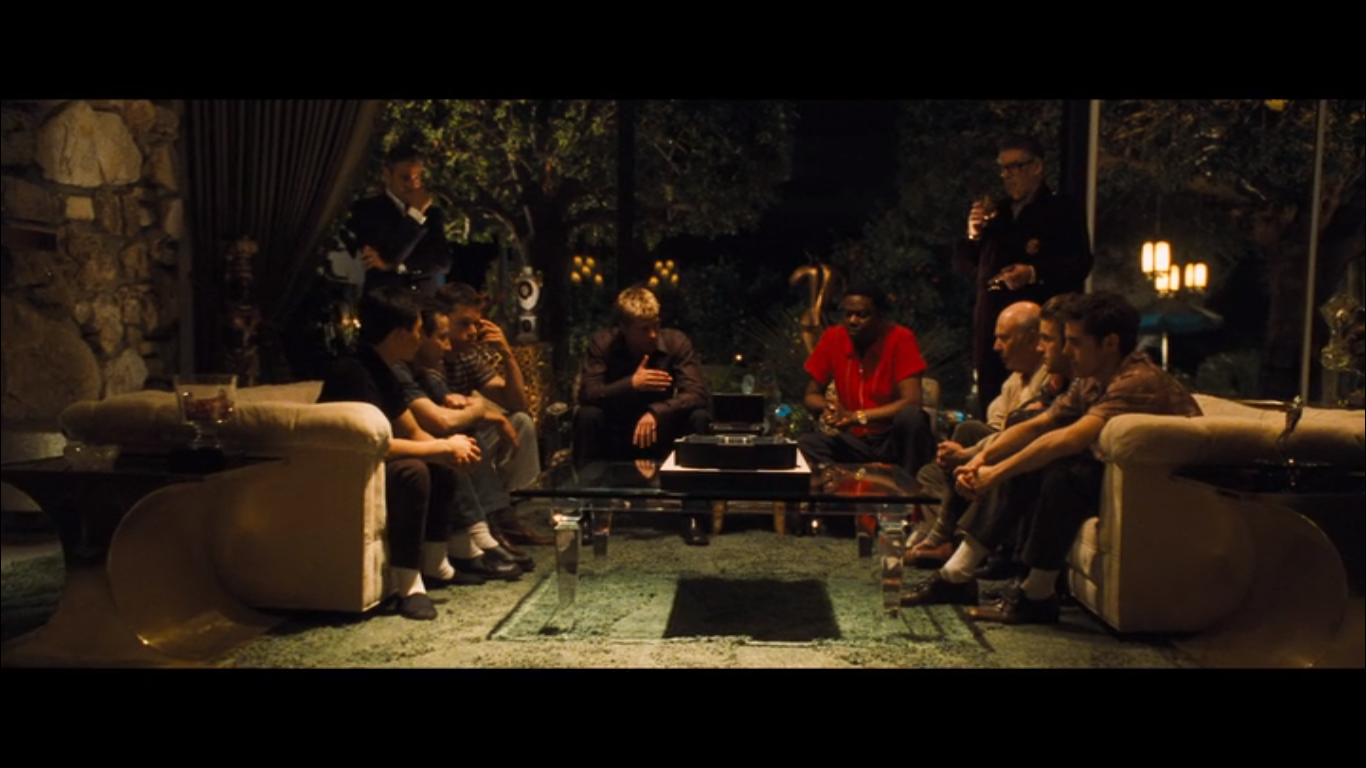The lovable rogue is a cultural fixture. In his more thieving modes (he’s canonically male, usually stealing hearts along the way), he steals and redistributes or returns the goods for safekeeping (Robin Hood, Indiana Jones); steals because he operates best on the margins and needs to outrun an already dodgy past (Han Solo, Mal Reynolds, Jack Colton); or simply steals because it’s fun, he’s good at it, and it beats working for a living, like Monsieur Leval or, well, Mr. Fox. In Steven Soderbergh‘s Ocean’s Trilogy (Ocean’s Eleven, Twelve, and Thirteen), the assembled crew combine elements of all of these.
Soderbergh’s 2001 remake of Ocean’s Eleven (1960) — an original best, and rightly, remembered as a Rat Pack vehicle and for Saul Bass’ title cards — is a tightly wound coil, a perfectly engineered genre exercise shot through with the director’s trademark attention to mechanics and centered on the surface appeals of its cast’s mega-star charm. (Plus or minus a Julia Roberts.)
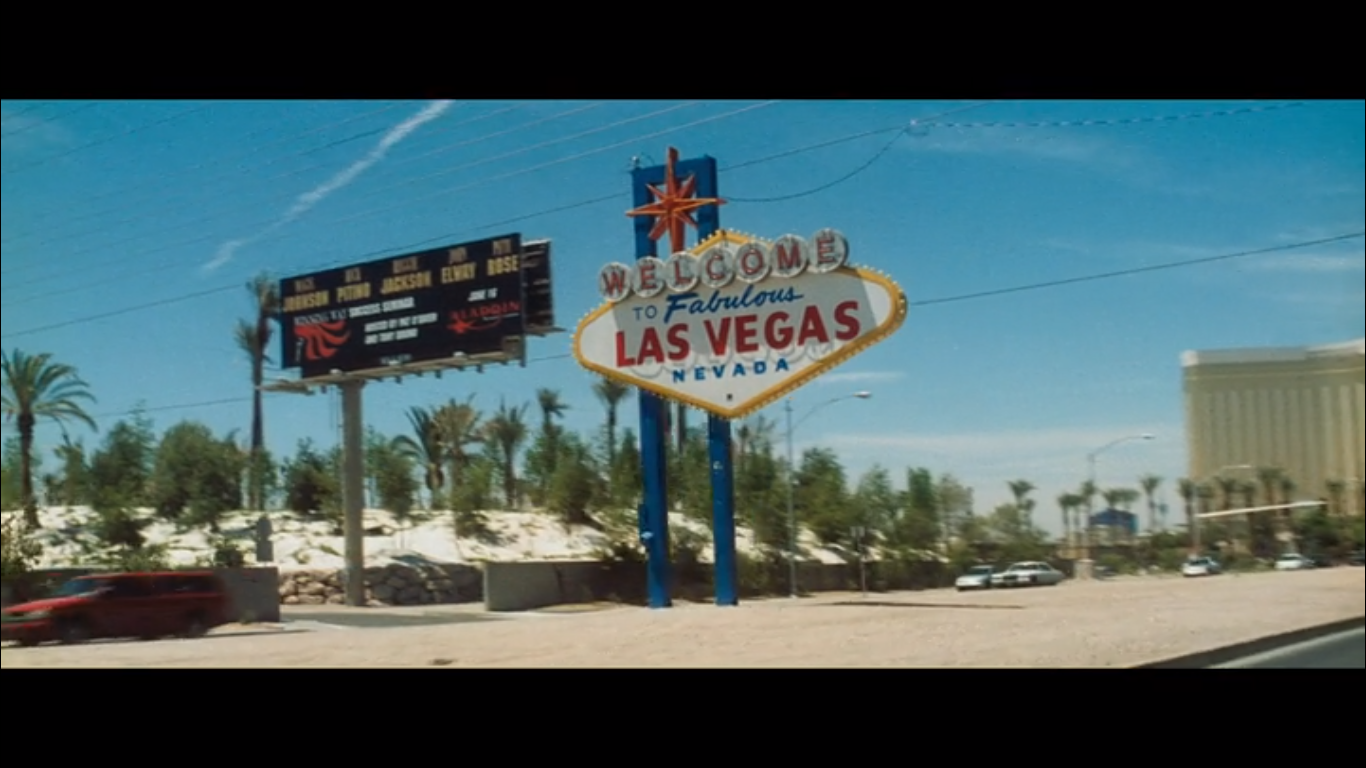 Focused more on professional lovable rogue George Clooney as Danny Ocean than either of the sequels, Eleven finds him in the Sinatra role, fresh out of jail and already planning a Vegas heist with constantly-eating co-conspirator Rusty Ryan (Brad Pitt). We get a description of the robbery’s target with financier Rueben Tishkoff (Elliott Gould). We get the team-assembly montage — your Bernie Mac here, your irritatingly-accented Don Cheadle there, dashes of pre-queasy Casey Affleck and alarmingly youthful Matt Damon, and so on. And we get the heist itself, which Ted Griffin‘s screenplay will set up and deconstruct in elaborate fashion. The genre cinephile nerdery, amped up to extremes in Twelve, takes second place here to the simple quest to find out how things work. Ocean’s Eleven is the kind of film that dares you to turn it off before its over.
Focused more on professional lovable rogue George Clooney as Danny Ocean than either of the sequels, Eleven finds him in the Sinatra role, fresh out of jail and already planning a Vegas heist with constantly-eating co-conspirator Rusty Ryan (Brad Pitt). We get a description of the robbery’s target with financier Rueben Tishkoff (Elliott Gould). We get the team-assembly montage — your Bernie Mac here, your irritatingly-accented Don Cheadle there, dashes of pre-queasy Casey Affleck and alarmingly youthful Matt Damon, and so on. And we get the heist itself, which Ted Griffin‘s screenplay will set up and deconstruct in elaborate fashion. The genre cinephile nerdery, amped up to extremes in Twelve, takes second place here to the simple quest to find out how things work. Ocean’s Eleven is the kind of film that dares you to turn it off before its over.
Those mechanics work hand in hand with the team’s interactions, each character delineated in ways to make them unique but also serve individual roles in the heist itself, a breezy treatment of noir fixtures (or comic book ones) resolving in a decidedly non-noir fashion. The overall emphasis here is on the thrill of discovery and the fun of camaraderie.
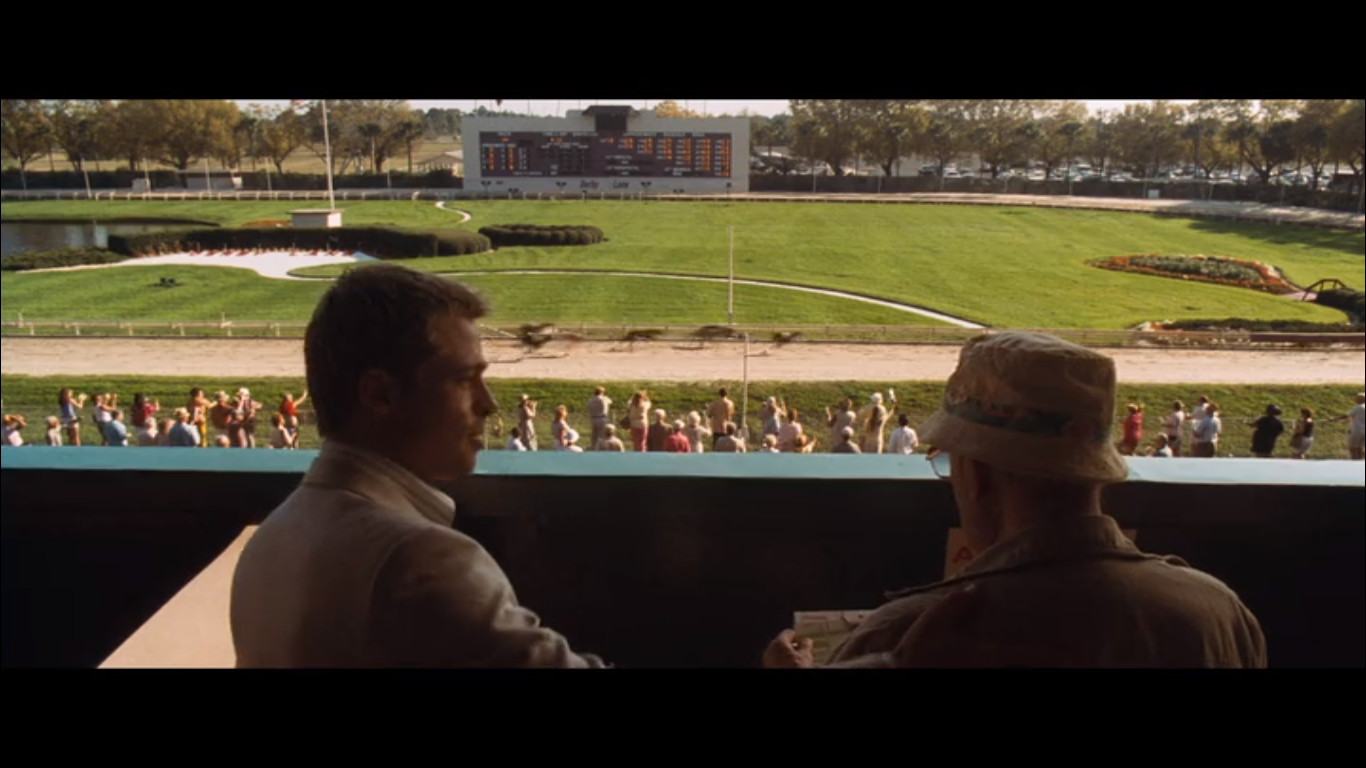 But of those lovable rogues, Ocean’s team hews closest to the essentials of Lubitsch’s protagonists in Trouble In Paradise, “self-made crooks” who value appearances and the satisfaction of robbing the rich above everything else, with some Fast and Furious-style family allegiance and gentlemanly codes of operation thrown in for good measure. They’re certainly not planning on redistributing this wealth, and we get the feeling that their very sense of self, or at least their masculinities, are wrapped up in all of this. (“Guys like us don’t change,” Rusty tells Carl Reiner‘s aging operator Saul. “We stay sharp or we get sloppy. But we don’t change.”)
But of those lovable rogues, Ocean’s team hews closest to the essentials of Lubitsch’s protagonists in Trouble In Paradise, “self-made crooks” who value appearances and the satisfaction of robbing the rich above everything else, with some Fast and Furious-style family allegiance and gentlemanly codes of operation thrown in for good measure. They’re certainly not planning on redistributing this wealth, and we get the feeling that their very sense of self, or at least their masculinities, are wrapped up in all of this. (“Guys like us don’t change,” Rusty tells Carl Reiner‘s aging operator Saul. “We stay sharp or we get sloppy. But we don’t change.”)
Unlike The Fugitive, in which we root for the innocent man to be exonerated, or The Thin Man, in which we anxiously wait for our heroes to drunkenly reveal the guilty party, the Ocean’s movies actively align our sympathies with these wily rascals, facing insurmountable odds and somehow still sticking it to the man.
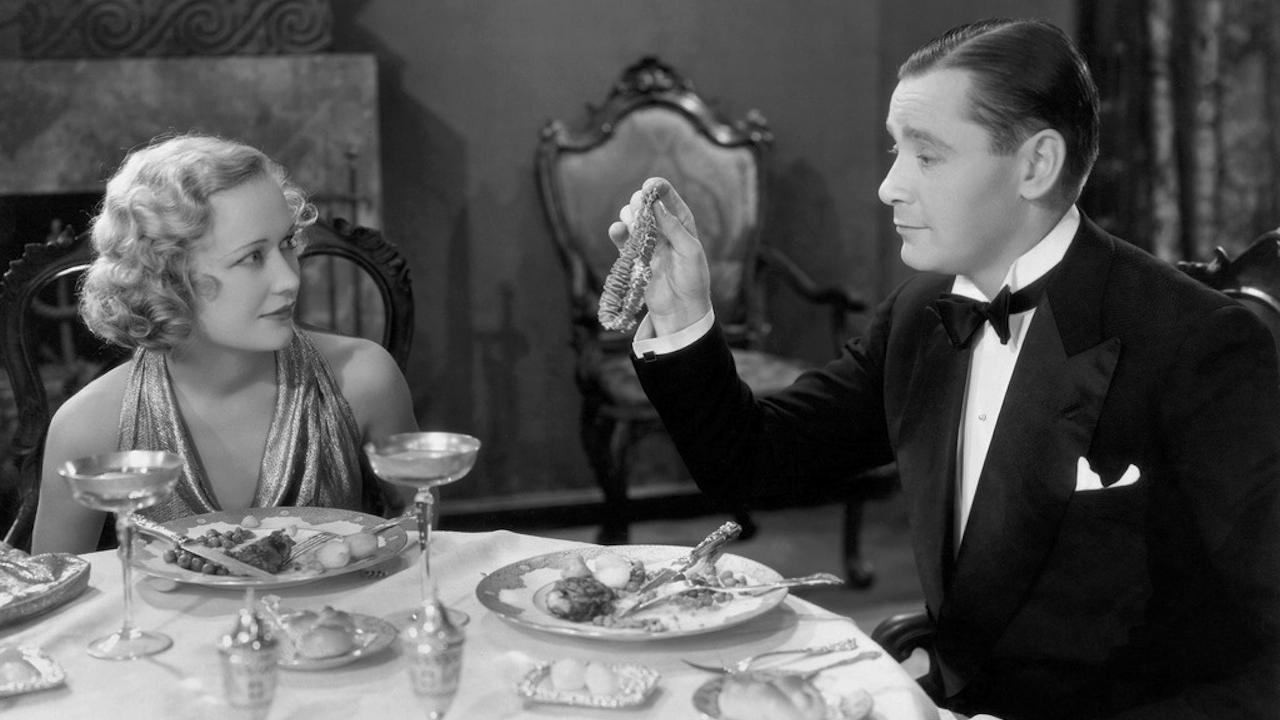 The Lubitsch classic was released at the height of the Great Depression. Ocean’s Eleven arrived just as the 2000s recession was getting underway; 3 years later, Ocean’s Twelve marked a significant period of wealth transfer to the richest of the rich; and Ocean’s Thirteen debuted the same year as the official timestamp of the Great Recession. And like Trouble In Paradise, Soderbergh’s trilogy functions both as an escapist indulgence in the trappings of wealth and glamour, and also a celebration of professionalized, highly-skilled class warfare, carried on by handsome, marginal men in well-tailored suits purchased with stolen money. These may not point to some sort of material necessity (and heist movies are nothing new, of course), but the evocations are all over the place. Call it something in the air.
The Lubitsch classic was released at the height of the Great Depression. Ocean’s Eleven arrived just as the 2000s recession was getting underway; 3 years later, Ocean’s Twelve marked a significant period of wealth transfer to the richest of the rich; and Ocean’s Thirteen debuted the same year as the official timestamp of the Great Recession. And like Trouble In Paradise, Soderbergh’s trilogy functions both as an escapist indulgence in the trappings of wealth and glamour, and also a celebration of professionalized, highly-skilled class warfare, carried on by handsome, marginal men in well-tailored suits purchased with stolen money. These may not point to some sort of material necessity (and heist movies are nothing new, of course), but the evocations are all over the place. Call it something in the air.
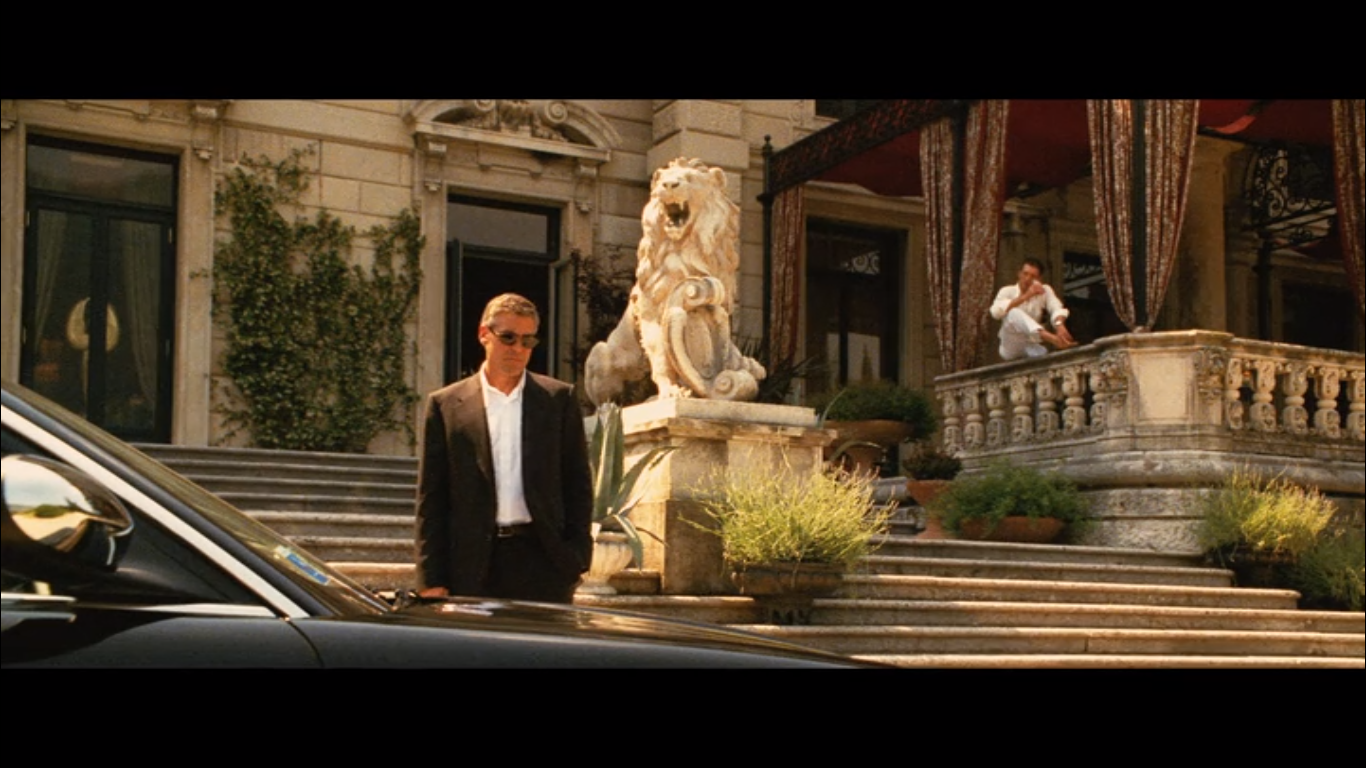 The irony is that we cheer on famously wealthy actors as they fleece the 1%. Hell, scenes in Ocean’s Twelve are shot at a Lake Como villa, not dissimilar from the one Clooney owns, the scoundrel. (That the actual set was Luchino Visconti’s house could be the topic for an entirely different, too-long discussion.)
The irony is that we cheer on famously wealthy actors as they fleece the 1%. Hell, scenes in Ocean’s Twelve are shot at a Lake Como villa, not dissimilar from the one Clooney owns, the scoundrel. (That the actual set was Luchino Visconti’s house could be the topic for an entirely different, too-long discussion.)
Soderbergh seems intent on pushing this irony as the series continued, with Twelve‘s manifold windows, glass doors, and, in the series’ most meta (and, to some viewers, most irritating) sequence, the character played by Julia Roberts trying to 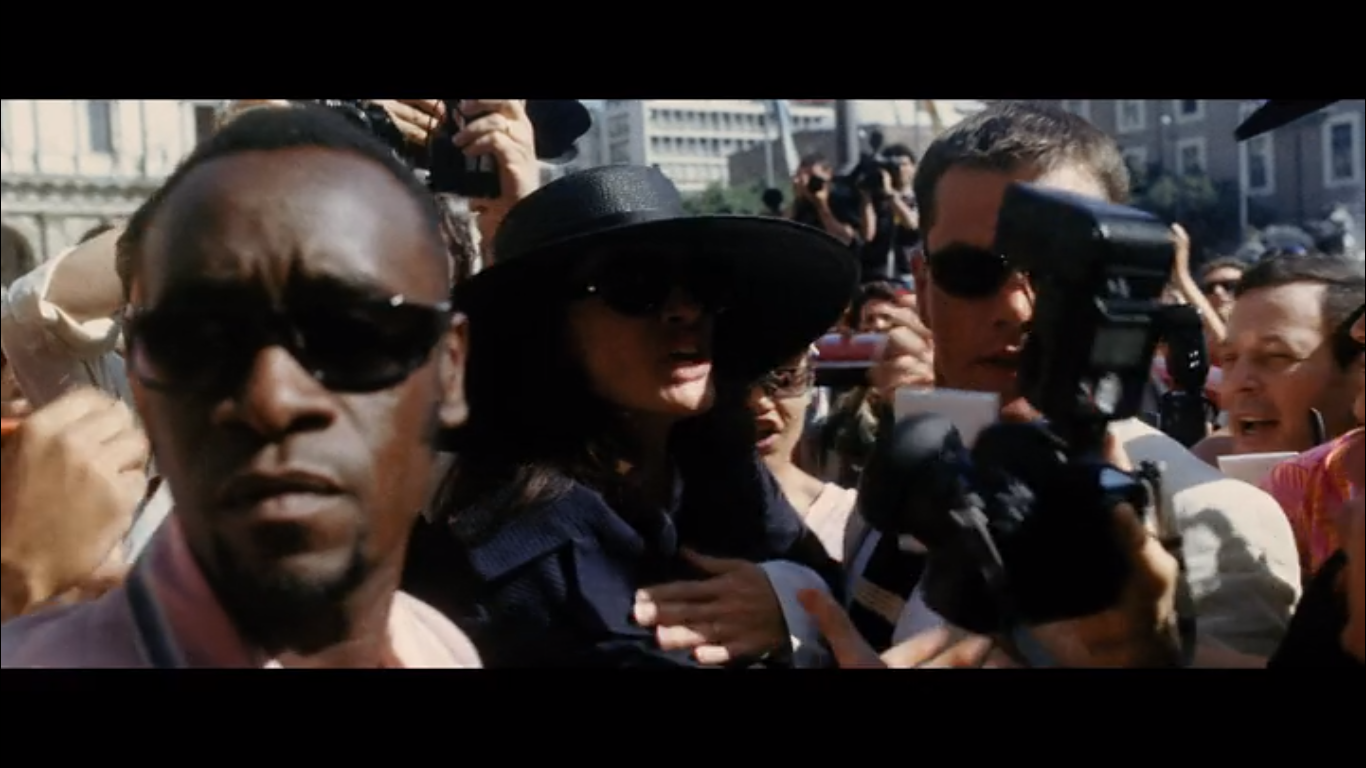 impersonate the “real” Julia Roberts, before running into Bruce Willis, playing himself. A shaky-cam sequence in Ocean’s Thirteen features Damon in London, shot during one of his days off from a Jason Bourne film, walking the streets of London, talking about the confusion of his multiple aliases. Thirteen concludes with Pitt cheekily advising Clooney that they should keep the weight off between heists, drawing attention to the actors’ commitments to other projects.
impersonate the “real” Julia Roberts, before running into Bruce Willis, playing himself. A shaky-cam sequence in Ocean’s Thirteen features Damon in London, shot during one of his days off from a Jason Bourne film, walking the streets of London, talking about the confusion of his multiple aliases. Thirteen concludes with Pitt cheekily advising Clooney that they should keep the weight off between heists, drawing attention to the actors’ commitments to other projects.
These jokes, some subtle and some less so, round at an increasingly self-aware set of texts. In films this outright entertaining and glossy, it’s hard to keep tabs on such things, lurking just out of sight. And the sense of cinematic pleasure that adheres to the whole affair — its clever mechanics, its easy charm and wit — equally obscures the class resentment at the heart of the stories, or at the least the first one. (Don’t believe me? A delightfully serious offering from LinkedIn titled “Eight Strategic Planning Lessons from the ‘Ocean’s Eleven’ Trilogy” advises professional readers to, among other things, “Set up clear, specific and timed objectives,” “Do your homework,” and, my favorite, “Create a professional network.” I imagine the author decided against going with Twelve or Thirteen because there wasn’t enough room for “create 3-D hologram of priceless Fabergé egg” or “obtain industrial drilling equipment for fake earthquake.”)
Soderbergh’s heist flicks, now including last year’s delightfully déclassé Logan Lucky (in which a character refers to the robbery as “Ocean’s 7-11”), play well on their own terms even as they hint at wellsprings of discontent under all the surfaces. We’ll see what Gary Ross (director of The Hunger Games and Pleasantville, writer of, um, Big) can do with the distaff, similarly star-studded Ocean’s 8, arriving in June.

